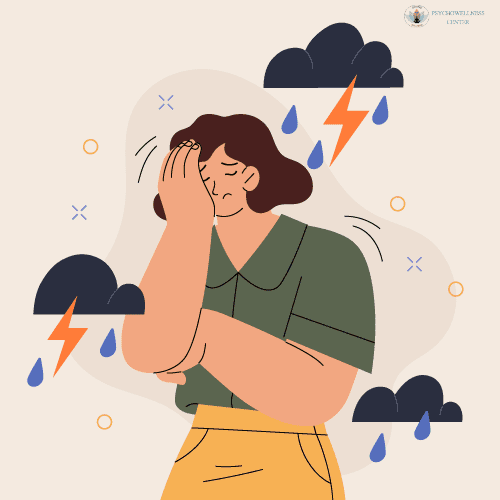In recent years, discussions surrounding the potential link between intrauterine devices (IUDs) and depression have sparked considerable debate and concern among women and healthcare professionals alike. As more individuals opt for long-acting reversible contraception (LARC) methods like IUDs due to their convenience and effectiveness, understanding the possible impact on mental health is crucial.
IUDs are small, T-shaped devices placed inside the uterus to prevent pregnancy. There are two types: hormonal and non-hormonal. Hormonal IUDs release progestin, a synthetic form of progesterone, which thickens cervical mucus and thins the uterine lining, thereby preventing sperm from fertilizing an egg.
The impact of intrauterine devices (IUDs) on mood is a topic that has sparked considerable interest and concern among healthcare providers and women considering contraception options. IUDs, both hormonal and non-hormonal, are highly effective forms of birth control known for their convenience and long-lasting benefits. However, reports of mood changes, including potential links to depression, have raised questions about the broader effects of these devices beyond their contraceptive efficacy. Understanding how IUDs may influence mood is crucial for women making informed decisions about their reproductive health. This discussion explores the current understanding of how IUDs affect mood, the underlying mechanisms involved, and considerations for those considering or currently using these devices.
Can IUDs Cause Depression?
One of the most contentious issues surrounding IUDs is their potential impact on mental health, particularly depression. Some women have reported mood changes, including increased feelings of sadness, anxiety, or irritability after getting an IUD. Research has attempted to clarify this association, but findings remain mixed and inconclusive.
The relationship between IUDs and depression remains complex and not fully understood. While some studies have suggested a potential link between hormonal contraceptives, including hormonal IUDs, and mood changes, including depression, the evidence is inconsistent. Hormonal IUDs release progestin, which can influence hormone levels and potentially impact neurotransmitters involved in mood regulation. However, individual responses to hormonal contraceptives vary widely, and not all women experience negative mood effects. Factors such as pre-existing mental health conditions, personal hormone sensitivity, and other individual differences may play significant roles in how IUDs affect mood.
It’s important to recognize that Individual counseling can play a crucial role in managing mood changes associated with IUDs. For some women, the emotional impact of these devices may be significant enough to warrant professional psychological support. Consulting with the Best psychologist in delhi or a mental health professional in your area can provide valuable insights and coping strategies tailored to your specific needs. Stress management techniques and personalized therapeutic approaches can be beneficial in navigating mood changes and improving overall well-being.
The hormonal changes induced by IUDs, particularly hormonal varieties, may influence neurotransmitter levels in the brain, potentially affecting mood regulation. Progestin, the hormone released by hormonal IUDs, can cross the blood-brain barrier and interact with neurotransmitter systems implicated in mood disorders.
Treatment Options for IUD-Related Mood Changes
If you suspect that your IUD is affecting your mood, it’s essential to discuss your concerns with a healthcare provider. Here are some strategies they might consider:
1. Monitoring and Evaluation: Your healthcare provider may recommend regular check-ins to monitor your mood and assess any changes. Keeping a mood journal can also help track fluctuations over time.
2. Switching to a Non-Hormonal IUD: For individuals sensitive to hormonal changes, switching to a non-hormonal copper IUD might be a viable option. While copper IUDs do not release hormones, they are associated with heavier periods and increased cramping in some users.
3. Hormonal Management: If mood changes persist and are bothersome, your provider may suggest hormonal interventions such as antidepressants or adjusting your current contraceptive regimen. It’s crucial to work together to find the right balance that works for your body.
4. Psychological Support: Therapy or counseling can be beneficial in managing mood changes associated with IUD use. Cognitive-behavioral therapy (CBT) or Mindfulness techniques can help develop coping strategies and improve overall well-being. Engaging with the best psychologist in India or an experienced therapist can be particularly effective.
Conclusion
It’s important to note that every woman’s experience with IUDs is unique. While some may notice no change in mood, others might experience significant emotional shifts. Personal factors such as medical history, hormone sensitivity, and pre-existing mental health conditions can all influence how an IUD affects an individual.
Navigating contraceptive choices involves balancing effectiveness, convenience, and potential side effects. The relationship between IUDs and Depression remains complex and multifaceted. While some women may experience mood changes with hormonal IUDs, others may find them to be a reliable and well-tolerated option.
Ultimately, the decision to use an IUD should be based on informed discussions with healthcare providers, considering individual health needs and preferences. By staying informed and proactive, women can make empowered choices regarding their reproductive health while prioritizing their mental well-being. As research continues to evolve, ongoing dialogue and comprehensive studies are essential to better understand the potential impact of IUDs on mental health. Armed with accurate information and support, individuals can confidently navigate their contraceptive journey while prioritizing their overall health and happiness.
At Psychowellness Center, our expert therapists deliver tailored mental health care throughout Delhi NCR, NOIDA, Faridabad, Janakpuri, Dwarka, and Vasant Vihar, ensuring accessible support for all.
Contribution:- For expert mental health support, connect with Dr. R K Suri, a top clinical psychologist, and Ms. Samta Pareek, a respected counseling psychologist and life coach, on TalktoAngel.

